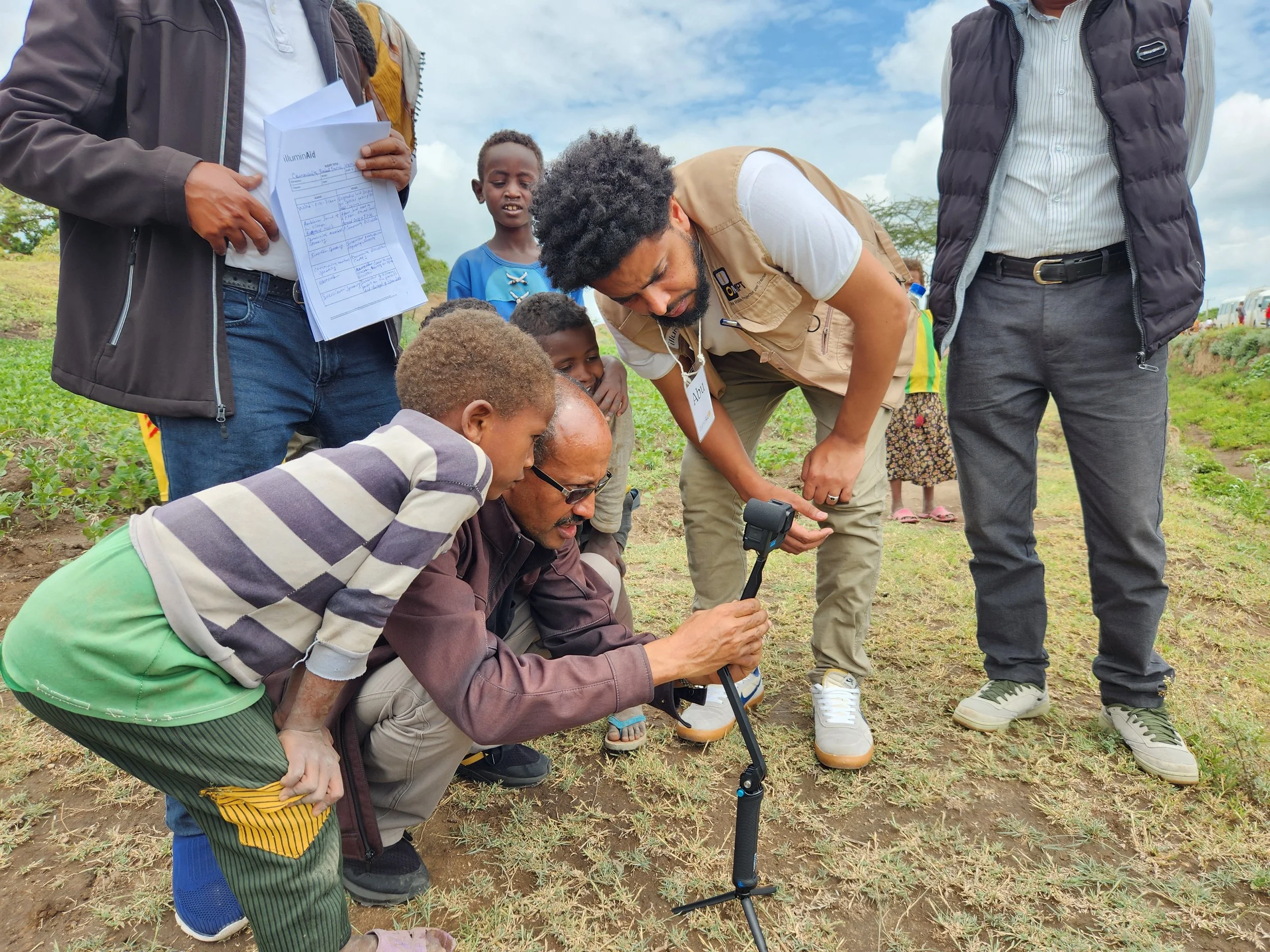Information and Communication Technologies to Provide Agricultural Advice to Smallholder Farmers: Experimental Evidence from Uganda
This research examines a structurally-similar intervention to illuminAid’s approach using Information and communication technologies (ICT) to advise smallholder farmers in Uganda in agricultural methods.
The Van Campenhout, Et Al. study is an open-access publication and illuminAid takes no ownership for the subject of this study’s research. Please see citation below.
Abstract
Agricultural advisory services generally rely on interpersonal knowledge transfers by agricultural extension agents who visit farmers to provide information. This approach is not always effective and has proved hard to scale sustainably, particularly in highly dispersed smallholder farming systems. Information and communication technologies (ICTs) have been advanced as a promising way to overcome many of the problems associated with conventional agricultural extension. We evaluate the effectiveness of an ICT-mediated approach to deliver agricultural information in a field experiment conducted among small-scale maize farmers in eastern Uganda. Three complementary technologies designed to address both informational and behavioral constraints to technical change are considered. First, we investigate the effectiveness of audiovisual messages (video) as a means of delivering information on input use and improved maize management practices to farmers. Second, we quantify the additional impact of complementing video with an interactive voice response (IVR) service. Third, we estimate the incremental effect of time-sensitive short message services (SMS) messages designed to remind farmers about applying key practices at specific points during the season. We find that households that were shown a short video on how to become better maize farmers were performing significantly better on a knowledge test, more likely to apply recommended practices, and more likely to use fertilizer than households that did not view the video. These same households also reported maize yields about 10.5% higher than those that did not view the video. We find little evidence of an incremental effect of the IVR service or SMS reminders.Citation
Van Campenhout, B., Spielman, D.J. and Lecoutere, E. (2021), Information and Communication Technologies to Provide Agricultural Advice to Smallholder Farmers: Experimental Evidence from Uganda. Amer. J. Agr. Econ., 103: 317-337. https://doi.org/10.1002/ajae.12089Images from a 2023 illuminAid project with CRS Ethiopia conducting related video-assisted agricultural advisory work in Adama, Ethiopia.


